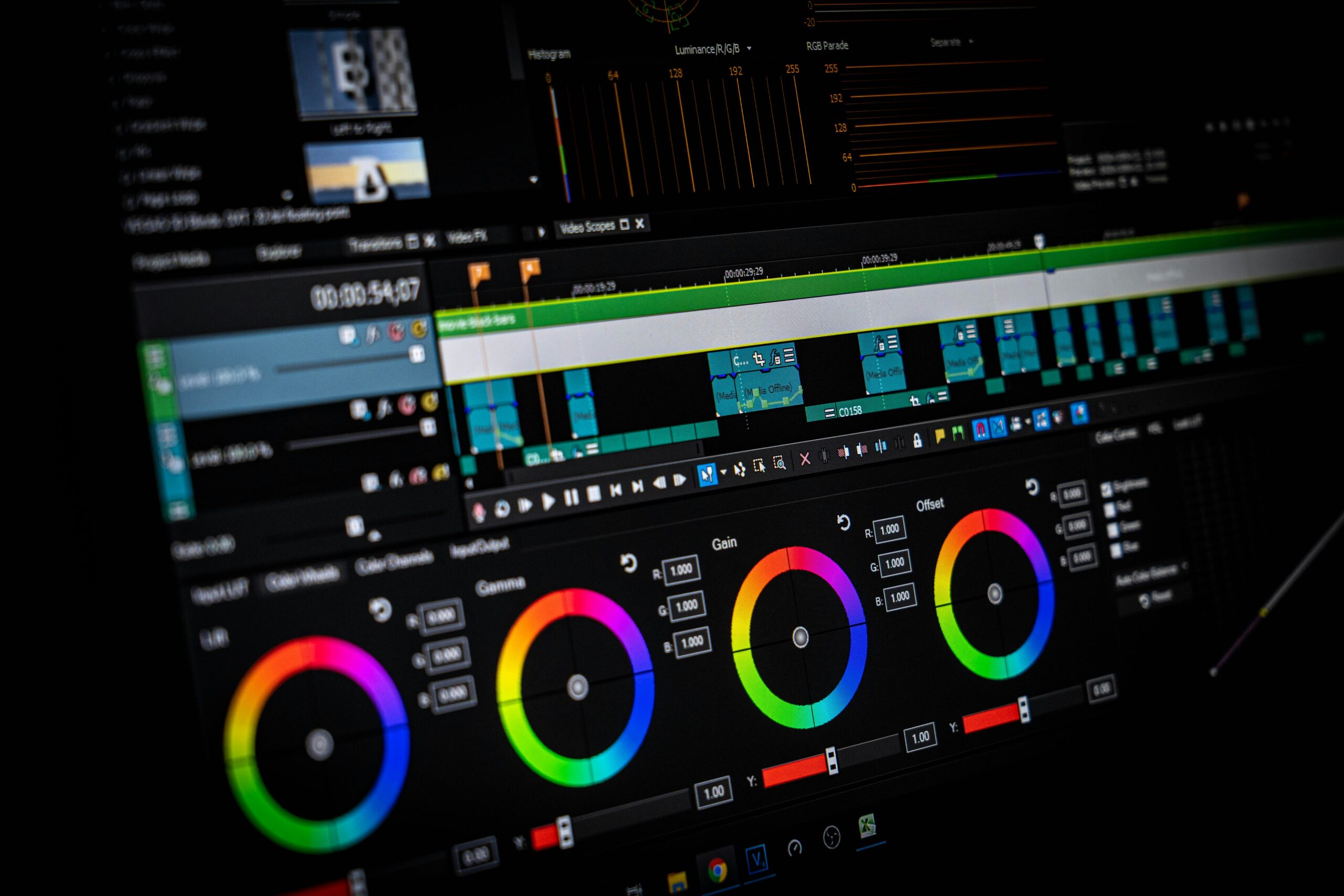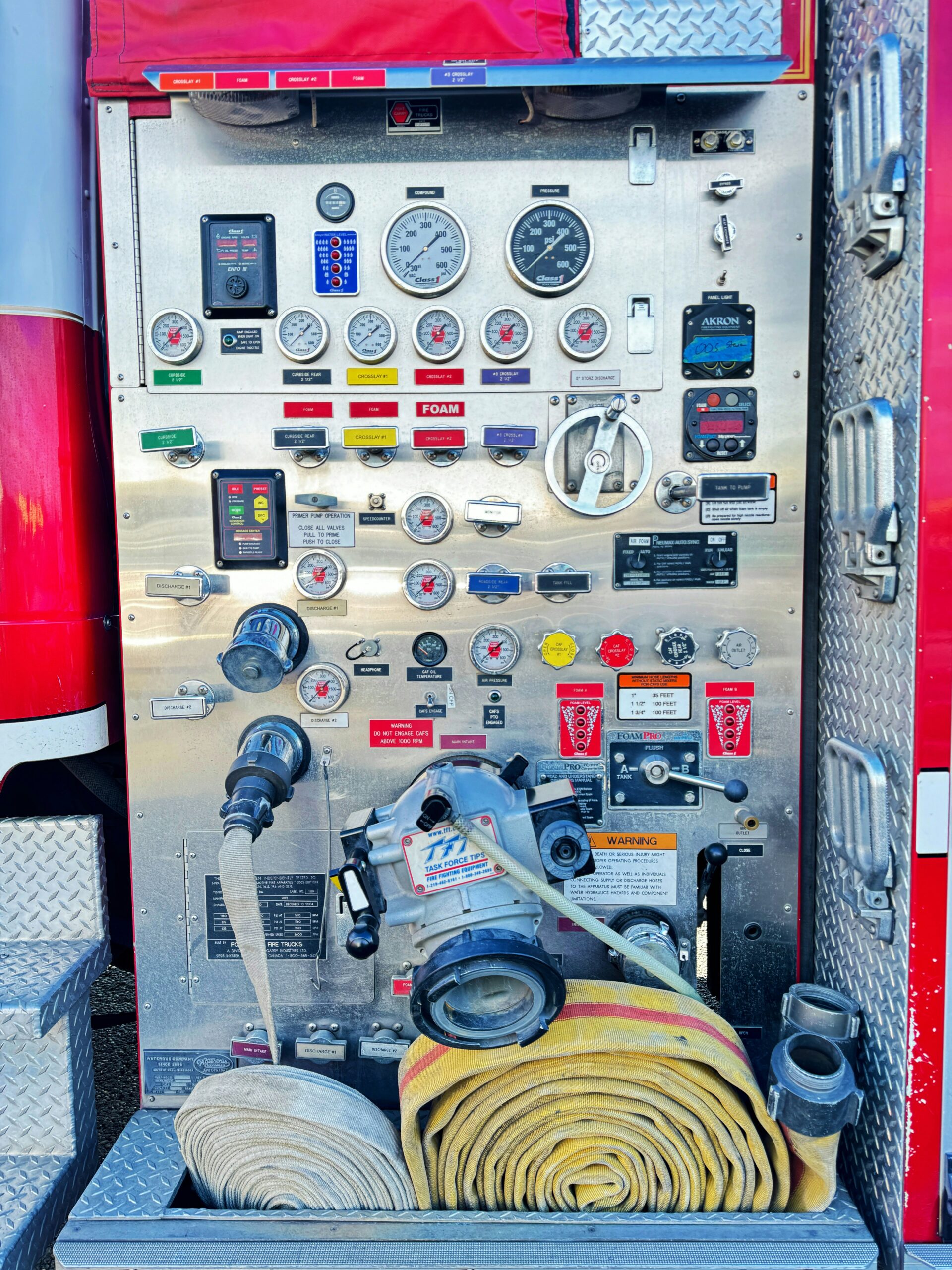
Photo by <a href="https://unsplash.com/@nejc_soklic" rel="nofollow">Nejc Soklič</a> on <a href="https://unsplash.com/?utm_source=hostinger&utm_medium=referral" rel="nofollow">Unsplash</a>
Introduction to Wikipedia’s Community
Wikipedia, the free online encyclopedia, stands as a testament to the power of collective knowledge and collaborative effort. At the heart of this extensive resource is its community, comprised of diverse contributors known as ‘Wikipedians.’ These individuals come from various geographical locations, educational backgrounds, and fields of expertise, thereby enriching Wikipedia with a multitude of perspectives and voices. This diversity not only fosters a more comprehensive compilation of information but also enhances the quality of content across an array of topics.
The philosophy of Wikipedia is rooted in the belief that knowledge should be freely accessible to everyone. This notion encourages individuals, regardless of their experience level, to contribute to the platform. Wikipedians can range from seasoned editors to novices who are just beginning to navigate the intricacies of Wikipedia’s editing system. This inclusivity is a fundamental principle that underpins the Wikipedia community, allowing contributions from a broad swath of society. It creates a welcoming atmosphere where both experts and casual users can collaborate effectively.
Central to the operation of this community are the guiding principles that govern engagement. Critical among these principles are verifiability, neutrality, and a commitment to a non-partisan view. Such rules ensure that the contributions made are reliable, balanced, and based on credible sources. Furthermore, discussions and decisions within the community often occur through consensus-building, promoting respectful dialogue among contributors. This structured yet flexible framework not only facilitates effective collaboration but also nurtures an environment where all participants feel valued and empowered to share their knowledge.
Ultimately, Wikipedia’s community exemplifies a collaborative spirit that thrives on openness and diversity, supporting the continuous growth and refinement of the encyclopedia. The engagement of various individuals, each bringing unique insights, is what makes Wikipedia a vital resource for millions worldwide.
The Editing Process Explained
Wikipedia operates as a user-generated encyclopedia, relying on a vast community of editors to create and maintain articles. The editing process is fundamental to ensuring the accuracy and reliability of the information presented on the platform. To contribute, individuals typically begin by creating an account, although editing is possible without one. However, registered users benefit from additional privileges, such as the ability to create new articles and engage in discussions.
Once an account is established, users can navigate the editing interface, which is designed to be user-friendly. The interface provides two primary modes for editing: VisualEditor, which allows for a WYSIWYG experience, and the traditional wikitext editor, which requires knowledge of Wikipedia’s markup language. Users can select the “Edit” button located at the top of a page to enter the editing mode. Changes may range from simple spelling corrections to adding new references or even creating entire sections.
One of the essential aspects of the editing process is adherence to Wikipedia’s strict content guidelines. Wikipedia emphasizes verifiability, neutrality, and the prohibition of original research. Each edit made to an article is subject to review by other community members, ensuring that content remains consistent with these guidelines. Maintaining high-quality content relies on thorough sourcing and proper citation of reliable references. A well-researched article enhances the credibility of Wikipedia as a resource.
After making changes, editors are encouraged to summarize their edits in the provided summary box. This practice enhances transparency and aids other editors in understanding modifications. If a user is uncertain about certain edits, they may engage in discussions on the article’s talk page, where community consensus is sought for controversial or unclear content. Through this collaborative process, Wikipedia continuously evolves as a trustworthy source of information.
Roles Within the Wikipedia Community
The Wikipedia community consists of a diverse array of roles, each contributing uniquely to the collaborative effort of creating and maintaining the vast encyclopedia. The most recognizable members of this community are the editors, individuals who actively write, modify, and enhance articles. Editors possess the ability to watch over articles, contribute new content, and engage in discussions on the content’s talk pages. Their participation is crucial as it ensures articles are updated and improved continually, addressing not only the content’s accuracy but also its neutrality and comprehensiveness.
Within the Wikipedia community, some editors advance to become administrators. Administrators are experienced users trusted with additional technical privileges, enabling them to perform actions such as deleting pages, blocking users, and protecting pages from vandalism. This role carries the responsibility of serving the community while ensuring that Wikipedia’s guidelines and policies are upheld. Administrators often play a crucial part in conflict resolution and maintaining the collaborative spirit of the community.
Another vital group is the patrollers, who monitor recent changes on Wikipedia to identify and correct vandalism or inaccuracies. This role is significant for maintaining the integrity of the platform, as they act as guardians against misleading information. Patrollers often work closely with newcomers to provide guidance and foster a supportive environment.
Additionally, bureaucrats serve a specialized function, managing user rights and overseeing the promotion of editors to the administrator role. They act as facilitators of growth within the community, ensuring that the promotion process remains fair and merit-based. Importantly, mentorship is a key aspect of this ecosystem. Veteran editors often guide new contributors, helping them navigate the complexities of Wikipedia’s rules and editing nuances, thereby fostering a welcoming and educational environment for all participants.
Content Policy and Guidelines
Wikipedia operates under a structured set of content policies and editing guidelines designed to maintain a high standard of information accuracy and reliability. These policies are rooted in key principles, namely verifiability, neutrality, and notability, which collectively serve to uphold the integrity of the platform.
Verifiability is a cornerstone of Wikipedia’s content policy. It mandates that any material added to the platform must be backed by credible sources. This criterion ensures that information can be checked and confirms its authenticity. Editors are required to provide citations from reputable sources when presenting facts, which enhances the overall trustworthiness of the articles. The reliance on verifiable information is crucial in enabling users to assess the credibility of the content they encounter.
Neutrality is another fundamental guideline that dictates how information is presented on Wikipedia. Articles must represent viewpoints fairly and without bias, allowing diverse perspectives to coexist without favoritism towards any particular opinion. This commitment to neutrality is vital in fostering an informed and balanced discourse, particularly on contentious subjects.
Furthermore, notability plays a significant role in content creation on Wikipedia. For a topic to warrant a dedicated page, it must meet specific notability criteria established by the community. This criterion ensures that only significant topics are covered, as judged by reliable, independent sources. By adhering to these guidelines, the Wikipedia community can prioritize pertinent and widely recognized information, benefiting the reader.
In summary, Wikipedia’s content policies and editing guidelines are essential for the platform’s functioning. Verifiability, neutrality, and notability together facilitate an environment where credible information can thrive, ensuring that Wikipedia remains a respected repository of knowledge for users worldwide.
Conflict Resolution in the Community
Wikipedia’s vast editing community operates on principles of collaboration and consensus, yet conflicts inevitably arise during the editing process. These disputes may range from disagreements on article content to differing interpretations of reliable sources. To address these challenges, Wikipedia employs several well-established methods for conflict resolution, fostering a collaborative atmosphere while maintaining the integrity of its content.
One of the primary tools available to editors is the discussion page associated with each article. This platform allows contributors to share their perspectives and propose changes or improvements. Users can express their viewpoints, negotiate modifications, and discuss the merits of various claims. By engaging in constructive dialogue, editors often find common ground or avenues for compromise. This collaborative communication is vital, as it transforms potential conflicts into opportunities for collaborative knowledge building.
In instances where discussions do not yield a satisfactory resolution, Wikipedia offers mediation services. This process involves neutral parties who facilitate discussions between conflicting editors to help them reach an agreement. Mediators, chosen from experienced community volunteers, provide guidance and suggestions for resolving disputes without escalating tensions. They play a crucial role in educating participants about Wikipedia’s guidelines and the importance of consensus-building to ensure sustainable solutions.
For more severe or persistent conflicts, Wikipedia has an Arbitration Committee that adjudicates disputes when all other methods have failed. Composed of experienced members of the community, the committee evaluates cases based on evidence presented and the guidelines established by Wikipedia. Their decisions are binding, aiming to restore harmony within the community while ensuring adherence to Wikipedia’s core principles. Throughout Wikipedia’s history, numerous notable disputes have illustrated the effectiveness of these conflict resolution strategies, reinforcing the importance of collaboration and consensus in maintaining a reliable and comprehensive resource.
The Role of Bots and Automation
Within the intricate framework of Wikipedia’s editing system, bots and automated scripts play a crucial role in maintaining the platform’s operational integrity and content quality. These automated tools are specifically designed to perform routine tasks that, if left to human editors, would be time-consuming and inefficient. Examples of these tasks include correcting typos, formatting issues, and updating links, thereby ensuring that articles remain coherent and accessible. Bots are also instrumental in monitoring changes made to articles, which is vital for protecting the encyclopedia against vandalism.
One of the significant functions of bots is their ability to detect and revert vandalism. For instance, many bots are programmed to identify disruptive edits that deviate from established content standards and can automatically restore an article to its original state. This capability not only preserves the encyclopedia’s reliability but also allows human editors to focus their efforts on more complex editing tasks and discussions that require a nuanced understanding of content. Consequently, the implementation of bots has led to accelerated editing processes, enhancing the overall efficiency of content management on the platform.
Despite their benefits, the use of bots raises ethical considerations that merit discussion. While bots can dramatically improve the quality and accuracy of Wikipedia entries, they also pose risks, such as the potential over-reliance on automated actions that may not always understand contextual nuances. Additionally, the deployment of bots can influence community dynamics, as some contributors may feel that automation diminishes the value of human input or creates an imbalance in editing capabilities. Striking a balance between automation and human oversight is essential to ensure that Wikipedia continues to thrive as a collaborative and user-driven platform.
Engagement and Recognition Programs
The Wikipedia community has developed a variety of engagement initiatives and recognition programs designed to encourage participation in content creation and editing. These strategies foster collaboration among contributors while ensuring the platform remains continuously enriched with quality information. One key engagement initiative is the formation of WikiProjects, which are collaborative efforts focused on specific topics or themes. Each WikiProject provides a structured environment where editors can come together to improve content related to their shared interests, facilitating comprehensive discussions and collaborative editing sessions.
In addition to WikiProjects, Wikipedia hosts edit-a-thons, which are organized events where people gather, either in person or virtually, to edit Wikipedia articles. During these events, experienced editors often mentor newcomers, helping them learn editing skills and guiding them in sourcing reliable information. Edit-a-thons have proven to be beneficial for increasing the diversity of topics covered on Wikipedia, as they frequently focus on underrepresented subjects or aim to enhance information about specific cultures, issues, or communities.
Contests are another effective means of driving user engagement. These competitions may target a wide range of editing tasks, from creating new articles to improving existing ones. Participants are recognized for their contributions, and prizes—ranging from merely recognition on social media platforms to tangible rewards—are often awarded to the winners. This gamification element not only incentivizes participation but also promotes a spirit of camaraderie among editors, encouraging them to collaborate instead of competing fiercely.
Moreover, Wikipedia acknowledges outstanding editors through various awards and recognition programs. These honors serve to highlight the contributions of prolific and dedicated editors, fostering a sense of achievement and belonging within the Wikipedia community. By celebrating individuals who make significant impacts on content creation, Wikipedia strengthens community ties and promotes continued participation in its collaborative efforts.
Challenges Faced by the Community
The Wikipedia community operates on a volunteer-based model, which presents several challenges that can impact content accuracy and representation. One significant issue is systemic bias, which can influence both the topics covered and the perspective from which they are presented. This bias may arise from the demographics of the editors; for instance, a predominance of editors from certain geographical regions or backgrounds can result in an underrepresentation of topics significant to other cultures or communities. Consequently, this can skew the public’s access to a diverse range of information, limiting Wikipedia’s role as a comprehensive knowledge resource.
Another pressing challenge facing Wikipedia is the gender gap in editor participation. Studies have shown that a considerable majority of editors identify as male, which can lead to discrepancies in the representation of women’s issues, achievements, and contributions within Wikipedia articles. Efforts are being made to address this imbalance, including initiatives aimed at encouraging female participation and guiding new editors through the editorial process. Such programs are essential for cultivating a more inclusive environment that reflects a broader spectrum of perspectives and expertise.
The prevalence of misinformation is yet another hurdle that the Wikipedia community must navigate. As a widely accessed source of information, Wikipedia is often targeted by individuals or groups who attempt to introduce false or misleading content. This necessitates a robust system of monitoring and correction, relying on the vigilance of editors and the community’s collaborative nature. To combat misinformation, Wikipedia continually educates its editors on the importance of neutrality and fact-checking, highlighting the need for reliable sources. In striving towards an equitable and inclusive platform, Wikipedia’s community persists in addressing these challenges, making strides to enhance representation and uphold information integrity.
The Future of Wikipedia’s Community and Editing System
As Wikipedia continues to grow as a pivotal resource for knowledge sharing, the future of its community and editing system appears promising yet challenging. Innovations in technology, particularly artificial intelligence and machine learning, are set to transform the way contributions are made. These advancements could facilitate more intuitive editing tools, enabling more individuals to participate effortlessly, regardless of their prior experience with editing. This technological shift could democratize content creation even further, attracting diverse voices and perspectives essential to maintaining Wikipedia’s relevance.
Moreover, the potential for enhanced collaboration within the Wikipedia community is immense. With advancements in real-time editing and communication tools, contributors from around the globe can engage more robustly. This increased connectivity fosters an environment where diverse contributions can be seamlessly integrated. Furthermore, initiatives aimed at refining the collaborative processes may help to address current issues related to content disputes and editing conflicts. By providing structured resources for dispute resolution and encouragement for collaborative editing, Wikipedia can cultivate a more cohesive community.
As the digital landscape evolves, so too must Wikipedia’s community guidelines. Emerging trends in content creation, such as multimedia integration, demand a reevaluation of existing protocols. The guidelines may need to adapt to incorporate new forms of verification and citation practices that reflect the plethora of information available on the internet. Additionally, promoting inclusivity and accessibility within the editing community will be vital, ensuring that underrepresented groups have a voice in the collaborative process. Wikipedia’s ability to remain relevant hinges on its willingness to evolve while adhering to its core principles of neutrality and openness.


